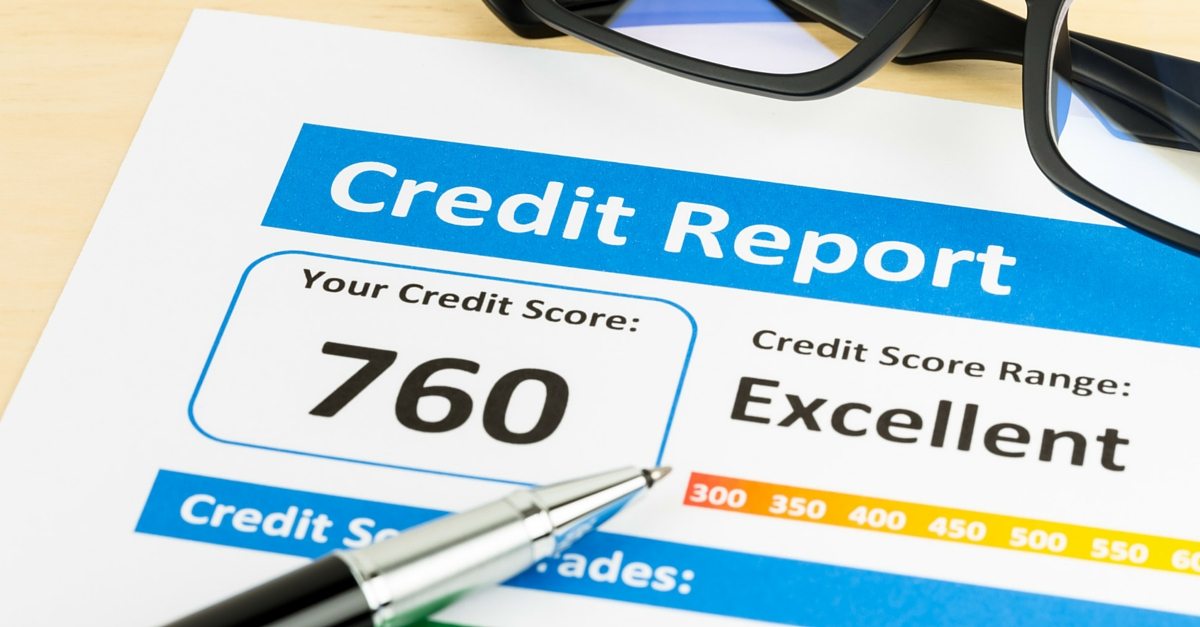Clearing Credit Reports: Disputing Errors and Removing Negative Items

Your credit report plays a vital role in your financial life. Errors or negative information on your credit report can hurt your credit score and make it harder to get approved for loans, credit cards, apartments, and even jobs. That’s why it’s so important to review your credit reports regularly and dispute any inaccuracies.
In this comprehensive guide, you’ll learn how to get copies of your credit reports, spot errors or negative items, properly dispute them with the credit bureaus, and get them removed so they stop negatively impacting your credit.
Why You Should Care About Your Credit Report
You have not one but three main credit reports – one from each of the major national credit bureaus (Experian, Equifax, and TransUnion). Lenders use information from your credit reports to make decisions about whether to approve you for credit and what terms or interest rates to offer you.
Mistakes happen, and errors can creep into your credit reports. A study by the Federal Trade Commission found that 1 in 5 consumers had verified errors in their credit reports that might affect their credit scores.
If you have errors or negative information on your credit report that doesn’t belong there, it can sabotage your credit, especially if those issues get reported to all three bureaus. Not only can mistakes lower your credit score, but they can make you look riskier to lenders.
That’s why it’s so important to thoroughly review your credit reports and quickly dispute any inaccurate information. Doing so can help boost your credit score and make sure you have the best shot at qualifying for affordable credit.
Request your Credit Reports
The first step is to obtain current copies of your credit reports from all three major credit bureaus. Under federal law, you are entitled to one free copy of your credit report from each of the nationwide credit bureaus once every 12 months.
You can request your free reports at AnnualCreditReport.com. This is the only authorized site for your free annual credit reports under federal law.
When you request your reports, be sure to verify your personal information to match your credit files. Double-check that your name, address history, Social Security Number, and date of birth all exactly match what the credit bureaus have on file for you.
You can choose to get all three reports at once or request one now and others later to compare them. Spacing out your requests allows you to monitor your credit more frequently throughout the year.
Review All Three Credit Reports For Errors
When you get your credit reports, set aside quality time to read through them fully. Go line-by-line looking for any inaccuracies, errors, or negative items that don’t belong on your reports:
- Incorrect personal information – Make sure all the personal information, like your name, address history, date of birth, etc., is completely accurate. Even small mistakes can mess up your credit.
- Accounts that don’t belong to you – You may find accounts on your reports that don’t belong to you at all. This can indicate fraud or identity theft.
- Closed accounts listed as open – Accounts you closed may still show up as open, making it seem like you have more available credit than you really do.
- Wrong credit limits or balances – Your credit reports may list incorrect credit limits or account balances.
- Multiple listings of the same debt – You may find the same medical bill or other debt listed multiple times.
- Late payments when you paid on time – Your credit reports might include late payments that are incorrect.
- Inaccurate personal information – Mistakes with your personal details like name misspellings or wrong addresses.
Disputing Errors on Your Credit Report
Under the Fair Credit Reporting Act (FCRA), both the credit bureaus and the organizations providing information to them are responsible for correcting inaccurate or incomplete information in your credit reports. So if you find mistakes – don’t panic, just dispute!
Here is the standard process to dispute inaccurate credit report information:
- Contact the credit bureaus by mail – Send letters explaining what information you are disputing and why it is inaccurate. Include copies of any proof or evidence supporting your dispute. Request that the disputed information be removed or corrected.
- Contact creditors and debt collectors – If you are disputing a specific account or debt, also reach out directly to that business and inform them in writing.
- Follow up if changes are not made – If errors are verified, but changes are not reflected in your credit reports within about a month, follow up again in writing. If errors still remain, submit formal dispute letters again.
When drafting your dispute letters, be as specific as possible about what information is inaccurate and why. If possible, provide documents or evidence to support your dispute. Make sure to send your letters by certified mail with a return receipt to have proof it was received.
Under the FCRA, credit bureaus have 30 to 45 days to investigate disputes with help from furnishers like banks and utility companies. Most errors get fixed at this stage, but if not, you can ask for an appeal. There are also other legal options like filing complaints with the Consumer Financial Protection Bureau or Federal Trade Commission.
The most important thing is not to accept a mistake or negative item on your credit simply. Use the dispute process to exercise your rights to get errors removed. And check back in on your credit periodically to make sure bad information does not creep back onto your reports. With persistence, you can get and keep your credit report in good, fair shape.
How to Handle Actual Negative Information on Your Credit Report
If there are no errors and you have legitimate negative information in your credit history, like missed payments, all is still not lost. Here are some tips for handling truly negative items while you work to rebuild your credit:
- Pay down balances and keep utilization low – Carrying debt is necessary sometimes, but try to always keep balances low compared to credit limits. High credit utilization hurts scores even if you pay on time.
- Negotiate with creditors – Talk directly with creditors or debt collectors to explain your situation and ability to repay. They can agree to alter repayment terms if you have financial hardship. Always get agreements for changes in writing.
- Consider credit counseling – Non-profit credit counselors can help negotiate with your creditors, create debt management plans, or recommend your best options.
- Wait it out – Most negative information falls off your credit reports after 6-7 years, depending on type per the FCRA. Continuing to manage credit responsibly helps offset old issues. You may see credit scores bounce back well before negative items disappear.
Tips to Prevent New Credit Report Issues
While you work on cleaning up your credit, it’s equally critical to avoid new issues cropping up:
- Check credit reports and scores – Get free credit reports annually and check your scores often to catch issues faster.
- Dispute mistakes quickly – If new errors appear, stay on top of the dispute process outlined above.
- Pay all bills on time – Being even just a few days late on payments can result in fees and hits to your scores. Set payment reminders to avoid issues.
- Keep credit utilization low – Using more than 30% of total available credit limits can lower scores regardless of whether you pay in full.
- Limit new credit – Apply conservatively for only the credit you need. Too many new accounts and hard inquiries can lower scores temporarily.
Staying vigilant to protect your credit is just as crucial as fixing current mistakes. Monitoring your reports and maintaining healthy habits makes the credit repair process much easier for you.
Benefits of Cleaning Up Your Credit Report
Here are some of the key benefits of fixing your credit report:
- Higher credit score – Removing errors and negative items can improve your credit score, getting you better approved odds and interest rates on loans and credit cards. Each mistake can drag down your score, so clearing them boosts your rating.
- Lower interest rates – With a higher credit score, you can qualify for the lowest interest rates from lenders, saving substantially on interest charges over the life of a loan or credit card balance. Even a small rate drop can equal big savings.
- Improved approval odds – Credit issuers often deny applicants with errors or negative marks on their reports. Cleaning up your history paints you in a more creditworthy light, improving your chances for approval.
- Increased financial opportunities – Good credit opens doors to the best credit card rewards programs, larger loans for big purchases, and more attractive mortgage rates for buying a home. Maintaining healthy credit expands your financial potential.
- Stronger rental applications – Landlords often check applicants’ credit reports to confirm they pay obligations reliably. A clean report can help you get approved for the rental you want.
- Peace of mind – Knowing your report is in good shape provides confidence in your finances. Monitoring your credit also helps guard against potential identity theft.
The time invested in credit report cleanup pays dividends through better loan terms, credit access, and savings over your lifetime.
Consult a Mississippi Credit Repair Attorney
If you have been unable to remove inaccurate or fraudulent information from your credit report by yourself, consider consulting a credit repair attorney licensed in Mississippi for legal help. An attorney can provide specific credit repair guidance for your situation and may be able to file legal actions against credit bureaus and furnishers to enforce your credit rights under laws like the Fair Credit Reporting Act.
Repairing and monitoring your credit reports is a smart financial move for all Mississippi residents. Keep your credit file accurate and negative-free to maximize your credit standing. If you ever need credit help or run into credit reporting problems in Mississippi, reach out to the credit report error lawyers at Ware Law Firm for reliable legal support and protection.












